Interview: Kristin Chenoweth
Guided by faith and a powerful voice, the Broadway superstar has long been a darling of the gay community

Reveal to Kristin Chenoweth that the publication she’s doing an interview with caters to the LGBT community and you get the following response:
“Yay!”
When you respond that “Yay!” is better than the alternative — the click of a hangup — she replies with a bright, earnest, “Anyone who clicks is no good, in my opinion.”
A Broadway powerhouse, the four-foot-eleven Chenoweth made her Great White Way debut in 1997 in Kander and Ebb’s Steel Pier. Two years later she won a Tony for her role as Sally, the sister of the the titular character in a revival of You’re a Good Man, Charlie Brown. It was a character that had not existed in the original 1967 production.
Chenoweth’s Broadway legend was eternally secured with her entrance in a floating bubble, as Glinda in Stephen Schwartz’s long-running smash, Wicked. It was a defining moment for Chenoweth’s stage career. Until, that is, her recent turn in On the Twentieth Century, for which she was Tony- and Drama Desk-nominated, and which ended its limited run in July.
“[Chenoweth] uses [her character’s] histrionics to create one of the most virtuosic portraits in song ever on Broadway,” wrote critic Ben Brantley in the New York Times. “The vocal vocabulary she deploys here ranges from jazz-baby brass to operatic silver, often in a single number, and she switches among them with jaw-dropping ease.”
Chenoweth is one of those nimble performers whose career has successfully traversed every medium. She was a key cast member in Bryan Fuller’s innovative Pushing Daisies, a provocative TV series that, like Fuller’s more recent work, the disturbing, abstract Hannibal, was far ahead of its time. Chenoweth was nominated twice for an Emmy during the show’s brief, two-season stint, winning in 2009.
“I don’t think it gets better than that show,” she glows. “I was just proud to be a part of it.”
She’s had recurring roles on Glee, The Good Wife and The West Wing and most recently appeared in the Disney movie Descendants. Entertainment Weekly wrote that Chenoweth “stole much of the show” as Maleficent.
Chenoweth, who appears in concert at Wolf Trap this Friday, August 28, hasn’t let her deep religious faith stand in the way of championing LGBT causes. In fact, her upbringing points to the kind of love and acceptance that should be the logical outgrowth of being a deeply spiritual person. Never the type of person to judge, she famously came to the defense of Promises, Promises co-star Sean Hayes when gay writer Ramin Setoodeh complained in Newsweek that it was a stretch to view the out gay actor in the role of a straight romantic lead.
“This article offends me because I am a human being, a woman and a Christian,” she wrote on Newsweek‘s website in 2010. “Setoodeh even goes so far as to justify his knee-jerk homophobic reaction to gay actors by accepting and endorsing that ‘as viewers, we are molded by a society obsessed with dissecting sexuality, starting with the locker room torture in junior high school.’ Really? We want to maintain and proliferate the same kind of bullying that makes children cry and in some recent cases have even taken their own lives?”
Chenoweth’s love for the LGBT community has only grown over time. When asked what message she would convey to gay fans, she doesn’t hesitate for a second.
“I love them,” she says, a deep warmth in her voice. “There are people out there who care and have their backs — people out there who are people of faith.”

METRO WEEKLY: You were raised in Broken Arrow, Oklahoma. Yours was an extremely religious home.
KRISTIN CHENOWETH: It was. It was a very spiritual house, a very loving house and one I’m really proud to say I grew up in. If I ever judged anybody for anything I was in big trouble. We jut were taught not to do that in my house and I’m thankful to this day that I had parents like that.
MW: And your church?
CHENOWETH: First Baptist Church of Broken Arrow. Southern Baptist.
MW: You got your start singing in the church.
CHENOWETH: Yeah, I was probably about seven. There was an audition for a solo in the choir. It was really for all the adults. But I auditioned and got this solo. I guess you could say that was the beginning.
I always feel a little funny saying I got my start in church, because I view church as a very sacred, special, spiritual place. I don’t really equate it with show business. But I did get a lot of my early experience singing in church, and when it’s just you and a microphone standing in front of people — that is an incredible teaching, learning place for a young singer. When you’re singing about things you actually believe in, it’s also amazing as well. It just evolved from there.
MW: How does one go from church choir to show business?
CHENOWETH: I grew up in a home where all kinds of entertainment was watched. A lot of movies — a lot of movie musicals. My mom and dad really enjoyed them, which is interesting. They’re not really musical in any way but they love music. They listened to all kinds of records — from the Count Basie Orchestra to the Carpenters. Of course, we had all the Broadway musicals. I wanted to go to Broadway one day even though I didn’t know what it was.
Sound of Music and Wizard of Oz were constants every year at my house. They used to play around Thanksgiving and Christmas. And if I missed them, it could be a really bad day. There weren’t a lot of things I had to see every year, but those were the nights I lived for. Then we had this thing called cassette tapes [Laughs]. I would get Phantom and Les Miz, and I would just wear them out. I loved Amy Grant and Sandi Patty and Dolly Parton.
I had an incredibly high soprano as a child and my parents didn’t really know what to do with me. People in church were saying, “This girl has got an incredibly high range.” I took piano lessons and my piano teacher arranged for me to sing for the vocal department [at a local university] and they said, “You have a little bit of a soprano prodigy here. What do you want to do with her?” My parents gave me a choice — do you want to go to New York or do you want to be a kid in Oklahoma and do choir and drama and church and try out for plays? I chose that. And I’m really glad I did, because I wanted to be a kid, but deep down the very, very old soul in me knew I was going to do it for a living. There was going to be plenty of time to work.
MW: Eventually you ended up on Broadway.
CHENOWETH: I did. I went to Oklahoma City University and got my undergraduate in dance and voice and then my Master’s Degree in Opera. I was to go to the Opera Conservatory in Philadelphia after the Master’s Degree but I went with my friend Denny to see what it was like to audition in New York. I auditioned for Animal Crackers and got it. So then I had this decision to make — do I really want to be an opera singer now? Or do I want to be in theater? I always knew really what my heart was calling for me to do.
So I went to do the show and got reviewed in the Times and got an agent. I understand now just how everything fell in place for me. It doesn’t always happen that way, and I’m very thankful. I feel like God was a part of that.
That’s not to say that it has been easy. I’ve worked so hard at what I do and sacrificed a lot, happily so, because I’m supposed to do this. As Betty White says, “We’re lifers. We’re just lifers, Chenoweth.” I wouldn’t have it any other way.
MW: What sacrifices did you make?
CHENOWETH: There’s been sacrifice in not getting married and having a family, but I just was never there. Some people might look at it as sacrifice in a bad way, but I don’t. I actually have to work hard at having a vacation. I know that sounds a little pathetic, but it’s the way I’m made. My family is very, very important to me, so there’s some sacrifices in my career, too.
MW: You won a Tony for You’re a Good Man, Charlie Brown, for a character that wasn’t in the original production. That’s sort of an ironic win, isn’t it?
CHENOWETH: I look back now and I’m not saying everything’s political, but I don’t know how it ever happened. Michael Mayer had an idea and he wouldn’t tell me. I was also offered Annie Get Your Gun with Bernadette Peters that same season — a hit play, supporting lead — and yet I took Charlie Brown not really knowing the role I was going to play.
On the first day of rehearsal, sitting in front of each our chairs was a hat with our character on it. My hat was Sally Brown, and Michael said, “You’re going to get to help us invent this.” It’s a true gift for any artist. I’ve gotten a lot of those roles along the way. I’m blessed that I’ve gotten to make my mark on these roles, all very different.
MW: One of the roles you’re most famous for is Glinda in Wicked. The show is still going strong over a decade later. I have friends who’ve said to me, “I wish I could have seen it with Idina Menzel and Kristen Chenoweth.” Have you ever considered a second go at it?
CHENOWETH: I hear that a lot. I don’t know how Idina feels about it, but you know when something is so special and natural that you’re scared to go back to it? You could never recreate it. That’s the way I feel about Wicked. Plus I’m in my forties and it would be a little awkward for me to play — well, it depends on how far back the audience is. [Laughs.]
MW: The success of that show has just been extraordinary.
CHENOWETH: I think part of the reason why is because Stephen Schwartz wrote the perfect song for the perfect moment for the perfect relationship [“For Good”]. The moment that Elphaba and Glinda sing together, which is about the themes of life, which is about true friendship, love and actually forgiveness, that was my favorite moment moment of the show, and I still love the song so much — it’s beautiful, the words are perfect, and perfectly tied to each character and the moment is incredibly special. When you’re talking about a relationship, it doesn’t get better than that moment.
MW: You’ve worked in every field at this point. Do you have a preference?
CHENOWETH: I like concert work, because I love the aspect of a live audience and I get to sing songs that maybe I wouldn’t normally get to do. I love a live audience in any way, in any venue. I also love, love, love character work. On television, for example, with Pushing Daisies and Glee and even GCB, I’ve played incredibly fun, complicated women. I enjoy that.
There’s been some movies that very few people have seen that I’ve been in that I’ve been so proud of. As Dolly Parton says, “I’m proud of my children, just some more than others.” But, you know, it would be weird of me not to say that the live audiences. I do best under pressure. I know that about myself.
MW: Pushing Daisies was such a unique, wonderful show — nobody had ever seen anything quite like it — but it only lasted 22 episodes. Is it tough when you’re working on something that you know is so special but have no control of its fate?
CHENOWETH: It’s incredibly frustrating. With Pushing Daisies, we had a change of regime at the time at the network and it was an expensive show to do and we were a cult hit. We were one of the best reviewed shows, ever. We also had a writers’ strike in the middle of it so we lost our momentum and that was a real bummer. I don’t think it gets better than that show. I think it was unique and like you said, nobody had ever seen it. I was just proud to be a part of it. It was a heartbreaker to see it get interrupted for six months by a writer’s strike. A lot of shows lost their momentum.

MW: What about the converse? Take Bewitched. Everybody — actors, crew — puts effort into a high-profile film and then it just bombs.
CHENOWETH: Heartbreaker, heartbreaker. One doesn’t know why things don’t work. It seems like a no-brainer, right? Nicole Kidman and Will Ferrell were so fantastic. Bewitched should have worked but it didn’t.
Then you have a movie like RV, where it wasn’t really critically acclaimed but it made so much money. I don’t get it. There’s no formula, no rules anymore. All I can do is say “I like that character, I’m going to go for it.” You just never know. If we’re being completely truthful, Wicked was not reviewed that well, so what are you going to do? You just continue to go on and do your work.
MW: The bigger risk is Broadway. We’ve seen examples of shows open and close within a week. Again, you’re investing your all into it. How do you cope with something that closes prematurely?
CHENOWETH: I go through a mourning process. I’m still going through it with On the Twentieth Century — and that was a hit. I get sad. I miss the people. You become family and I have to allow myself to mourn it. I go through it with every show. Whether it’s a hit or a bomb, I go through it every single time. There’s nothing like theater on Broadway when you’ve been so invested and then it opens, you know, it’s not being received.
Steel Pier –– my first Broadway musical — I remember looking up in the balcony and seeing empty seats and not understanding how a Kander and Ebb musical wasn’t selling out. But that’s part of our business. I think I loved those shows even more because there was something a little quirky, a little off about them. They have my heart. I still pop in the cast album of Steel Pier and I say “How did this not win best score?” The music is beautiful but again, it didn’t work and don’t know why. I’d love to see that one re-tooled and brought back to life.
MW: Your education in the arts was so important. Yet America seems less and less invested in arts education. What are your feelings on the topic?
CHENOWETH: Those that do invest, invest all the way, and those people have my heart. But America as a whole, we have not put our priority on the arts and that bothers me. If you look at Europe in any way, shape or form, if you look at China, if you look at anywhere, even Latin America, music is culture. Our culture is sports — and I love sports, no one is a bigger basketball fan than me. But our schools get cut down in the arts program. I would like to see that changed. As a whole, I think we can do better in our country.
MW: Why do you think it is that we don’t place enough emphasis on arts education?
CHENOWETH: Because the truth is we have lots of fish to fry and the main ones are medical care and economy. I’m certainly not a politician, but I can tell you that when a kid gets up and sings, or has an art class, or wants to play an instrument and feels good about themselves, that even if they don’t ever become a flautist or a singer or an actor or anything artistic, it stays with them. I believe it makes us better people and opens up our minds to creativity in a way we never thought possible.
And I also believe it can instill self-esteem — not overconfidence, but self-esteem — in a kid, and that goes into our adult life, especially when it’s missing at home, for example. Arts shouldn’t be discarded and pulled from our public schools. They should be celebrated and have as much emphasis put on them as math. But that is a very strong statement from me and I know not everyone agrees.
MW: You’re a confirmed gay icon. Was there ever a point, given your religious upbringing, that you had to become comfortable with gay people or was there an evolution for you?
CHENOWETH: When I was a little girl I had a friend named Jackie Bell in third grade who was my buddy. We walked to school together and it was the first time I ever heard the word “dyke.” I didn’t know what it meant. And I remember there was a guy across the street named Kevin that was my brother’s age — five years older — and people called him a “homo,” and I didn’t understand. I went home and I asked my mom about it and she said, “First of all, you’re not allowed to say those words. Secondly, this is what they mean, and some people judge it and think that it’s wrong. And that’s not for us to decide. Our job is to love.”
Actually my high school boyfriend turned out to be gay. Or I should say, he always was gay. He helped me pick out my prom dress. He was my best friend ever. He was amazing. I just saw how his life changed when he did come out in college — how he was tortured and had to leave basically college and go and be away and find a place that accepted him, which made me really sad.
MW: You’ve been an outspoken advocate for the LGBT community and our rights, to the point where you’ve written editorials defending us when you felt necessary.
CHENOWETH: I immediately always felt drawn to not just people who are gay, but people who are quote-unquote different. I think it was maybe because I was so little and I have this interesting voice, so I got teased a lot. I never really got upset by it. I just laughed. But I had friends in all groups and I just never understood the pointing of the finger.
I once asked my grandma how it could be possible that gay people would go to hell, I don’t understand why people say that, and she said, “I personally always thought that that was not correct.” This is a woman who is in heaven now, by the way, sittin’ by Jesus, tellin’ them what to do, I’m sure. And she said, “I read the Bible, I eat fish, I take the meat that serves me well, but I don’t choke on a bone.”
I’ve been judged for my beliefs and for my activism. If you had told me growing up that I would have been in this position, I would have never believed you. I just find it natural. I do get a little heated with people because I don’t really want to be judged for my opinions on my belief, especially by my own. Because I don’t judge them.
So that’s where I stand on it all. There have been a lot of Christians who’ve really understood where I’m coming from and accepted me, but I don’t want to paint a picture that we’re all the same. I think there are over 200 sects of Muslim communities and not all of them are going to blow up planes. So there are those out there that love and accept and I’m proud to be friends with a lot of those people.
And then there are those who are not and I understand that’s their belief and their way. They’re going to go exactly by what they’ve been taught their whole lives, so I don’t judge them.
I’ve said it in many interviews but if it was a sin to be 4’11”, what would I do? I’m not tall. That’s the way God put me together. I could wear heels, but I’m still 4’11”. I believe God puts people together the way He wants them to be. It’s how we choose to live our life that He looks at, I believe. If you’re talking about promiscuity and things like that, that’s a different subject. But when you’re put together a certain way, that’s not a mistake. And that’s how I feel.
Kristin Chenoweth appears Friday, August 28 at The Filene Center at Wolf Trap, 1645 Trap Road, Vienna. Tickets are $28 to $60. Call 1-877-WOLFTRAP (965-3872) or visit wolftrap.org.
Support Metro Weekly’s Journalism
These are challenging times for news organizations. And yet it’s crucial we stay active and provide vital resources and information to both our local readers and the world. So won’t you please take a moment and consider supporting Metro Weekly with a membership? For as little as $5 a month, you can help ensure Metro Weekly magazine and MetroWeekly.com remain free, viable resources as we provide the best, most diverse, culturally-resonant LGBTQ coverage in both the D.C. region and around the world. Memberships come with exclusive perks and discounts, your own personal digital delivery of each week’s magazine (and an archive), access to our Member's Lounge when it launches this fall, and exclusive members-only items like Metro Weekly Membership Mugs and Tote Bags! Check out all our membership levels here and please join us today!





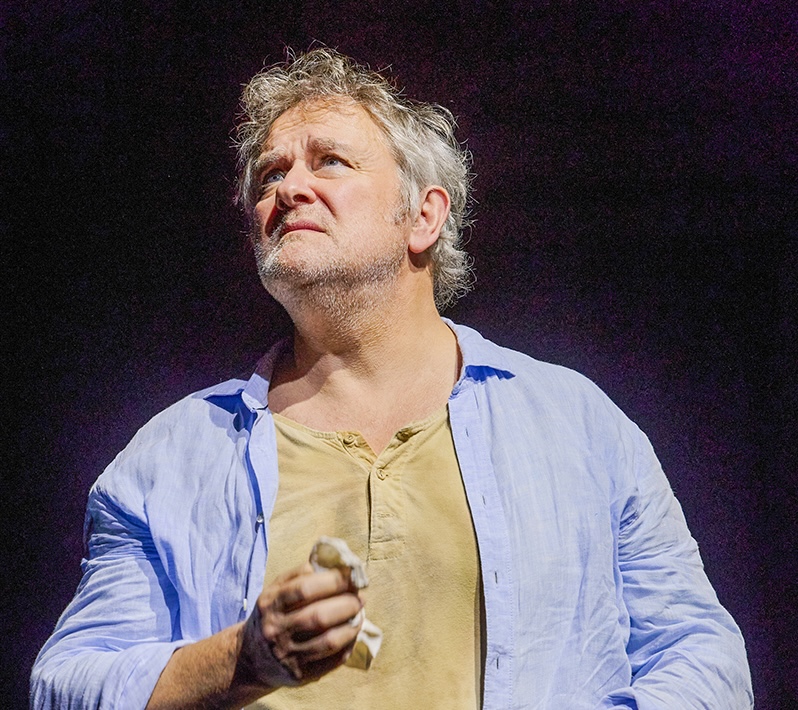
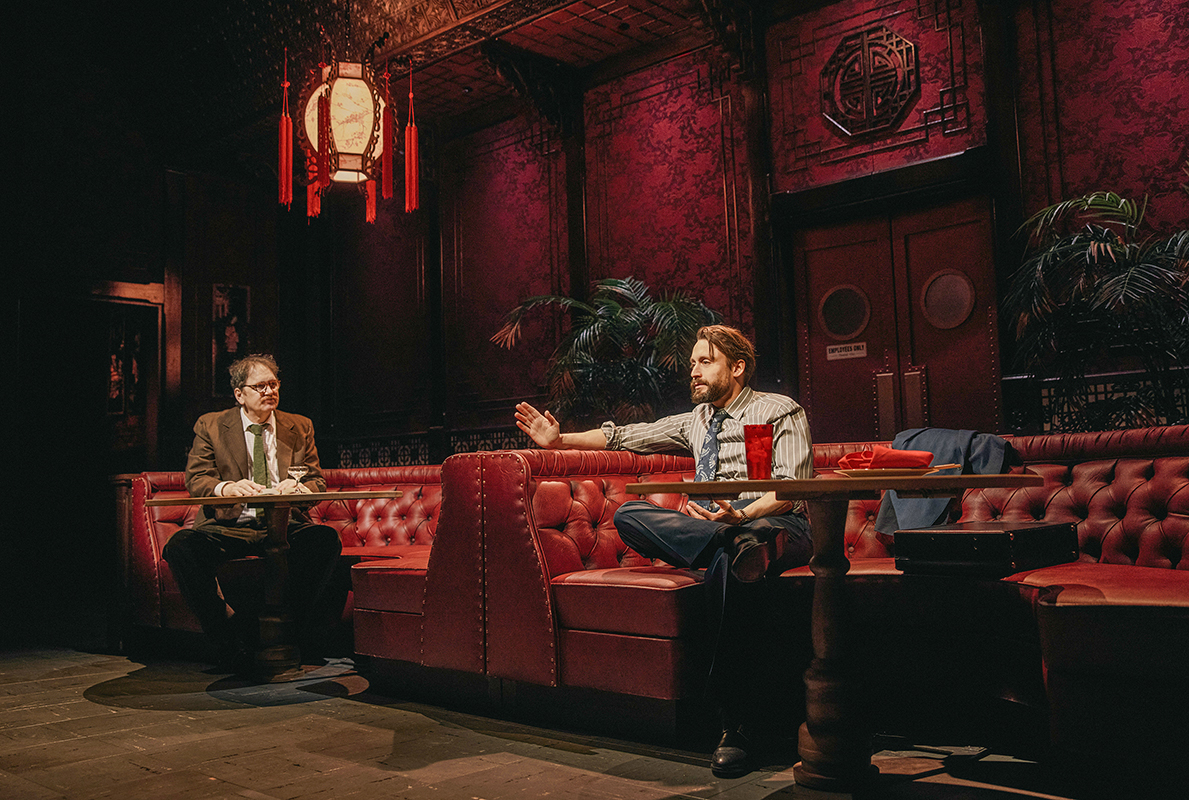
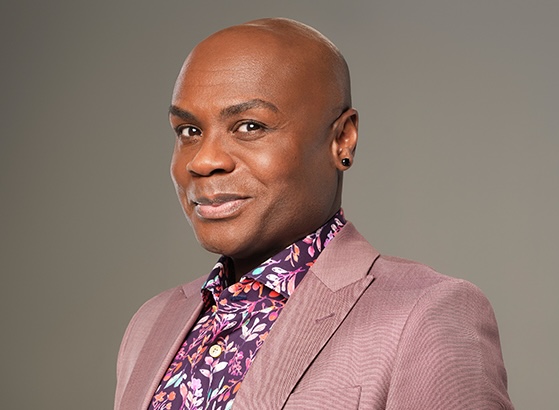













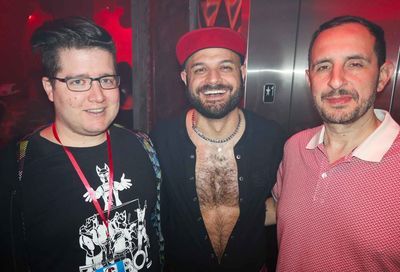
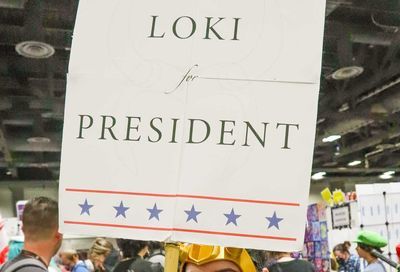
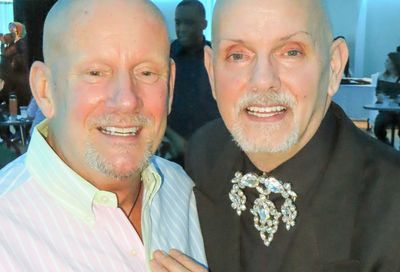
You must be logged in to post a comment.